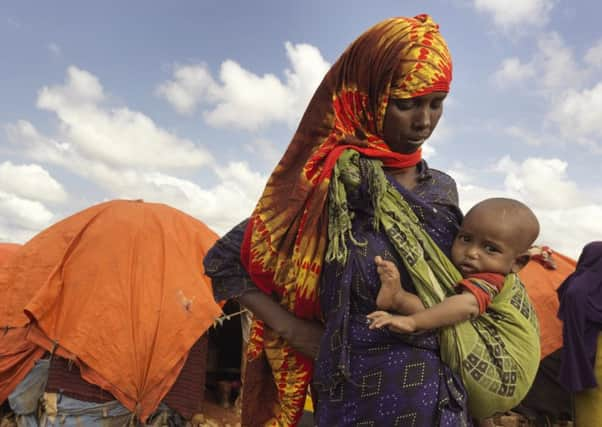Michael McKean: Somalis can rewrite their own history


When Somalia gained its independence from Italy and Britain in 1960, its future was unwritten. Across the country, Somalis share a common language, a common culture and religion, but poverty and weak governance have seen the country fracture time and again into clashing clans and militant groups.
Since independence, the country’s civil war and two famines have collectively claimed more than an estimated million lives. But, through all of this Somalis often joke if there is one word to describe their national character, it’s “resilient” – such are the challenges that they have weathered.
Advertisement
Hide AdAdvertisement
Hide AdNow, for the third time in three decades there is talk of famine. An unholy cocktail of drought in East Africa, conflict, ongoing poverty and poor services have brought six million of the country’s people to crisis, and half of those will struggle to survive without emergency assistance.
Farmers, whose animals have died and lands have dried up, are gathering what they can carry and leaving their homesteads, often by foot, in search of water and food. In November, the rains that should fall twice annually failed completely, dramatically escalating the situation. Since then more than 800,000 Somalis have abandoned their homes, with hundreds of thousands living in makeshift camps for displaced people on the edges of larger towns, where food and water is still scarce and disease is spreading.
So far, it sounds familiar? But this isn’t the whole story.
The lesser known thing about Somalia in 2017 is how much Somalis are helping themselves, upending their image in past years as passive recipients of hand-outs and aid.
My organisation Mercy Corps has worked in Somalia since 2005 and has helped more than one million people, increasing their access to food and clean water, supporting local markets and providing education and civic opportunities for young people. We have been on the frontlines responding to the most recent drought but we have seen the enterprising attitude of young Somalis doing what they can to tackle their country’s issues for themselves.
One of our projects worked with young people to ensure they received a good education and support to become community leaders, opening up their opportunities to improve their country’s future. Over six years we worked with more than 67,000 young people, some of whom found new ways to work with local government or set up forums to debate issues that affected their lives.
Most recently, we were humbled to see young people who had taken part in our leadership workshops begin to organise food collections in more well-off parts of the country to distribute to where the hunger crisis is most severe.
Somalis can’t surmount their huge challenges on their own, and so we must stand ready to help them. But the message we hear from Somalia is clear: give people the opportunity to improve their own communities and they will challenge your perceptions and can re-write their history.
Michael McKean, Director of Programmes, Mercy Corps